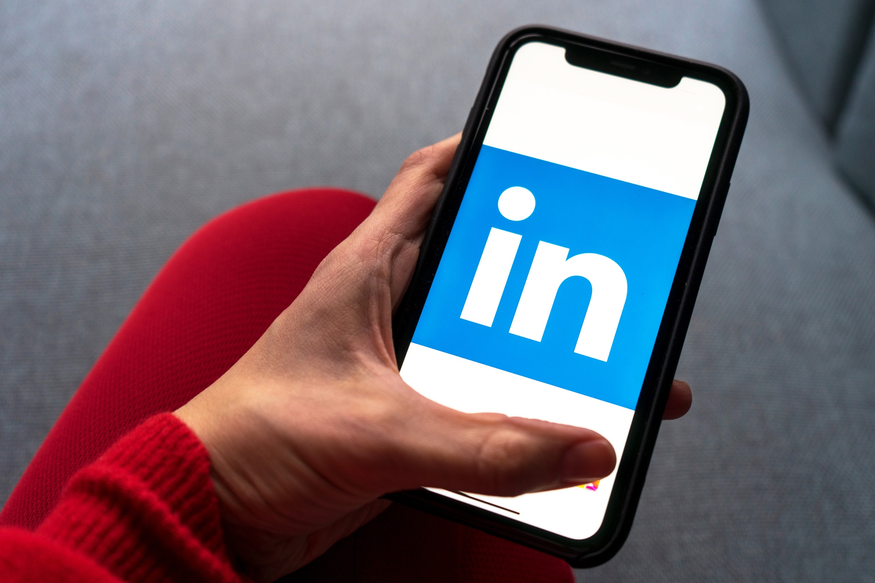LinkedIn job scams & fake recruiters aren’t new, but they’re getting more sophisticated and clever, says Oscar Rodriguez, vice president of product management at LinkedIn. Amid tech layoffs, even the savviest job seekers and employers in the tech space are being targeted…and duped.
“We see websites being set up. We see phone numbers with a seemingly professional operator picking up the phone and answering on the company’s behalf. We see a move to more sophisticated deception,” Rodriguez recently told the Financial Times.
Cybersecurity company Zscaler released this helpful report after discovering LinkedIn job scams involving its own brand. Zscaler’s key observations regarding these latest LinkedIn job scams include:
- Threat actors masquerading as actual recruiters from specific companies.
- Malicious new domains registered on hosting providers like Namecheap.
- Attackers scraping and reusing the contents of real job postings from public sites like SmartRecruiters and LinkedIn to convince applicants the post is legitimate.
- Fake application forms that steal sensitive personal information from victims and may be sold, used for fraud, and to further target and extort victims in these job scams on LinkedIn.
- Newly Registered Domains (NRD) with suspicious Top-Level Domains (TLDs) such as .online, .work, .live, etc., typically followed by the name of the actual hiring organization the attackers LinkedIn fake recruiters are impersonating.
In one scam identified by Zscaler, the fake job listing was nearly identical to their own. It directed job applicants to a questionnaire that asked the victims to verify their identification by uploading a copy of their state ID, driver’s license, residential permit, or passport. But that’s not all about the job scams on LinkedIn.
“Once the submission has been received by the scammers, they reach out using email to schedule a fake interview using Skype or a chat application…[that] Skype invitation provided in the email shows a profile photo of an actual Zscaler recruiter,” the company states. “Following the fake interview, candidates may receive a fake job offer and be routed through a fake onboarding process. As a final step, victims may be asked to pay for shipping the IT hardware equipment they will need for the remote position or payments for onboarding training. Job scams on LinkedIn scammers may also ask for Social Security numbers and bank account information for depositing paychecks.”
This is just one iteration of LinkedIn job scams & fake recruiters out there. As Bloomberg reports, FTC data shows job scams are surging: They’ve more than doubled since late 2019.
“Right now, job-hungry populations are being targeted, such as people laid off by tech companies, immigrants seeking jobs (especially for visa requirements) and recent college grads. The boom in remote jobs allows scammers to advertise positions or companies that don’t necessarily exist,” says Bloomberg’s Arianne Cohen about the job scams on LinkedIn. She shares the story of a technical writer who composed a paid test article as part of what was supposed to be a hiring process. When the contact asked for his banking information in order to pay him, he sensed something was wrong.
Why do these LinkedIn job scams work, even with job seekers who should “know better”? Cohen concludes that the investment of time and attention today’s scammers are willing to put in makes the job scams on LinkedIn practically undetectable.
“Just two years ago, reasonably savvy people could spot most scams with common sense. Most were click-and-go crimes, involving the minimum interaction to procure identity information or install malware. Today’s scams LinkedIn fake recruiters are surprisingly elaborate, with fake company websites and phone or video interviews,” she writes. “Previously, a personalized, in-depth recruitment letter meant safety. But today, anyone with access to your LinkedIn profile can ask an AI tool like ChatGPT to create a recruitment letter that name-checks your alma mater and employers.” This is why we should know avoid job scams on LinkedIn.
DevOps.com pointed us to a Reddit true-tale of a Supply Chain Coordinator job advertised on LinkedIn. User insincerechili was interviewed via chat and was told “they were going to ‘send my answers to the hiring board for review and consideration,’” he wrote. After asking how it all turned out, he added, “Well, the ‘recruiter’ got back with me and said my interview was top tier and they were going to connect me with my supervisor. All they needed was my name, date of birth, address and… banking information LOL.”
So, how can you tell you’re being targeted by LinkedIn fake recruiters & LinkedIn job scams? LinkedIn itself offers tips, including being skeptical of listings and pre-employment processes that involve:
- Financial requests, including requesting payment for equipment or your bank information.
- Leading with promises of specific compensation (like bonuses).
- Bad spelling and grammar.
- Signs of impersonation (such as no link to the business, mismatched email addresses and website domains, or an incomplete LinkedIn profile).
- Applications that request highly personal information, including a social security number.
- Mysterious recruiters who can’t be verified easily.
If any of these red flags are raised, or you just have a bad feeling, act on that. To avoid job scams on LinkedIn, do some digging on the company and the recruiter. Find a secondary source with contact information and call or email them through that channel to determine if the opportunity with that employer truly exists. Forming relationships with local recruiters in your industry helps, too.
Don’t let LinkedIn job scams and fake recruiters ruin your job search; just be more skeptical and look for those “too good to be true” or “huh, that’s weird” warning signs.




